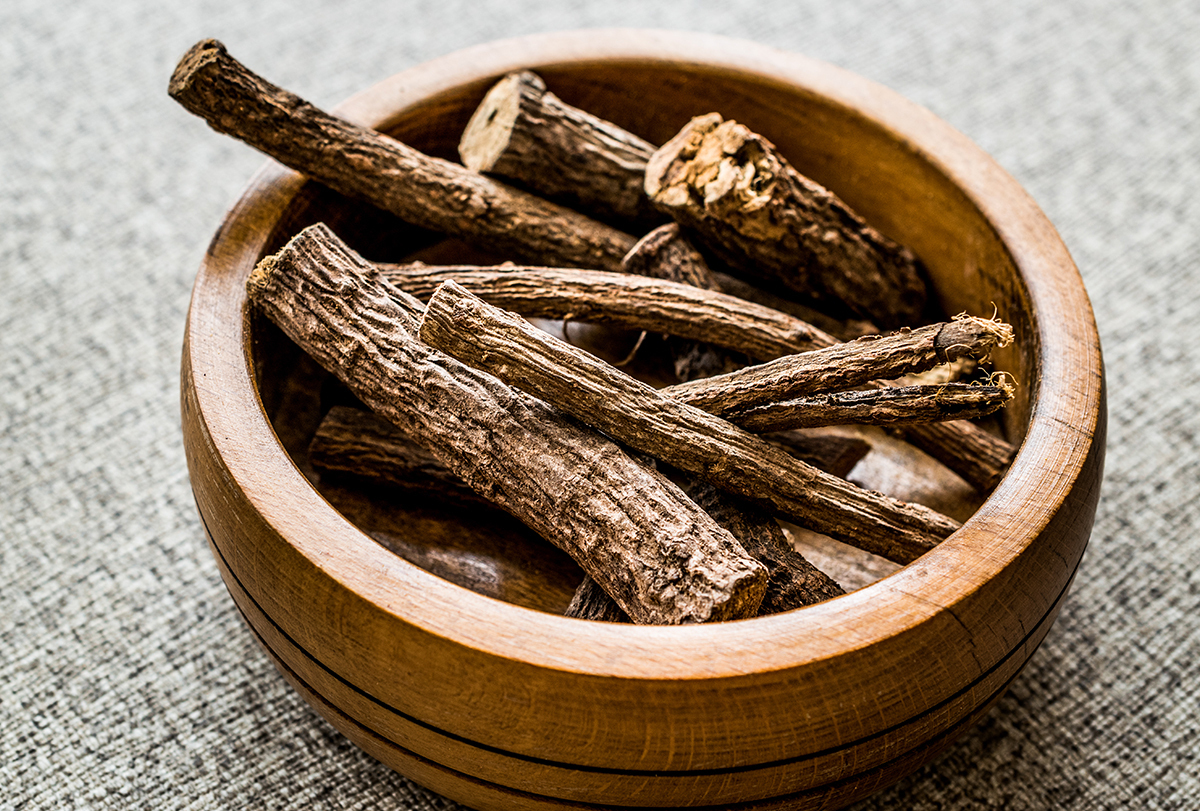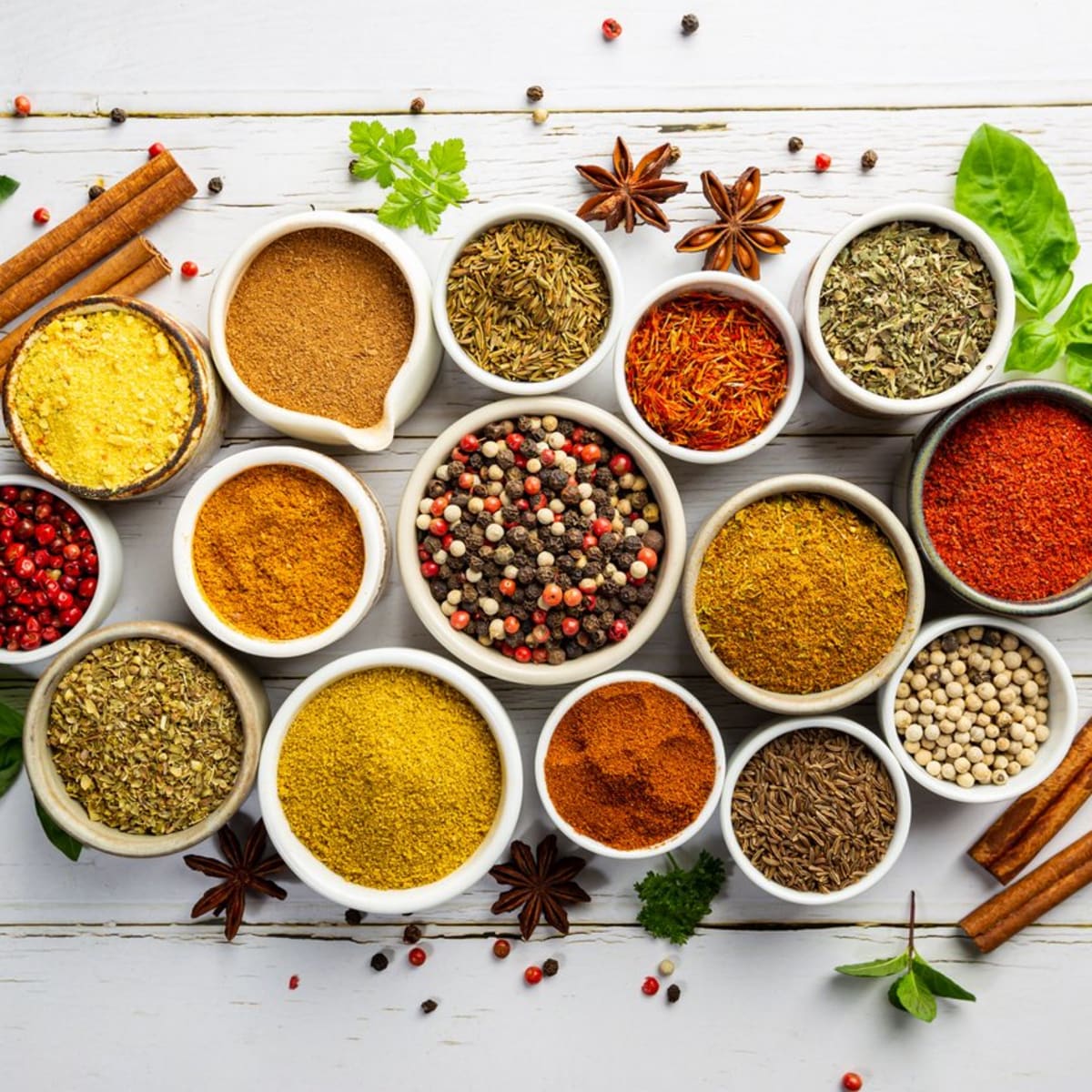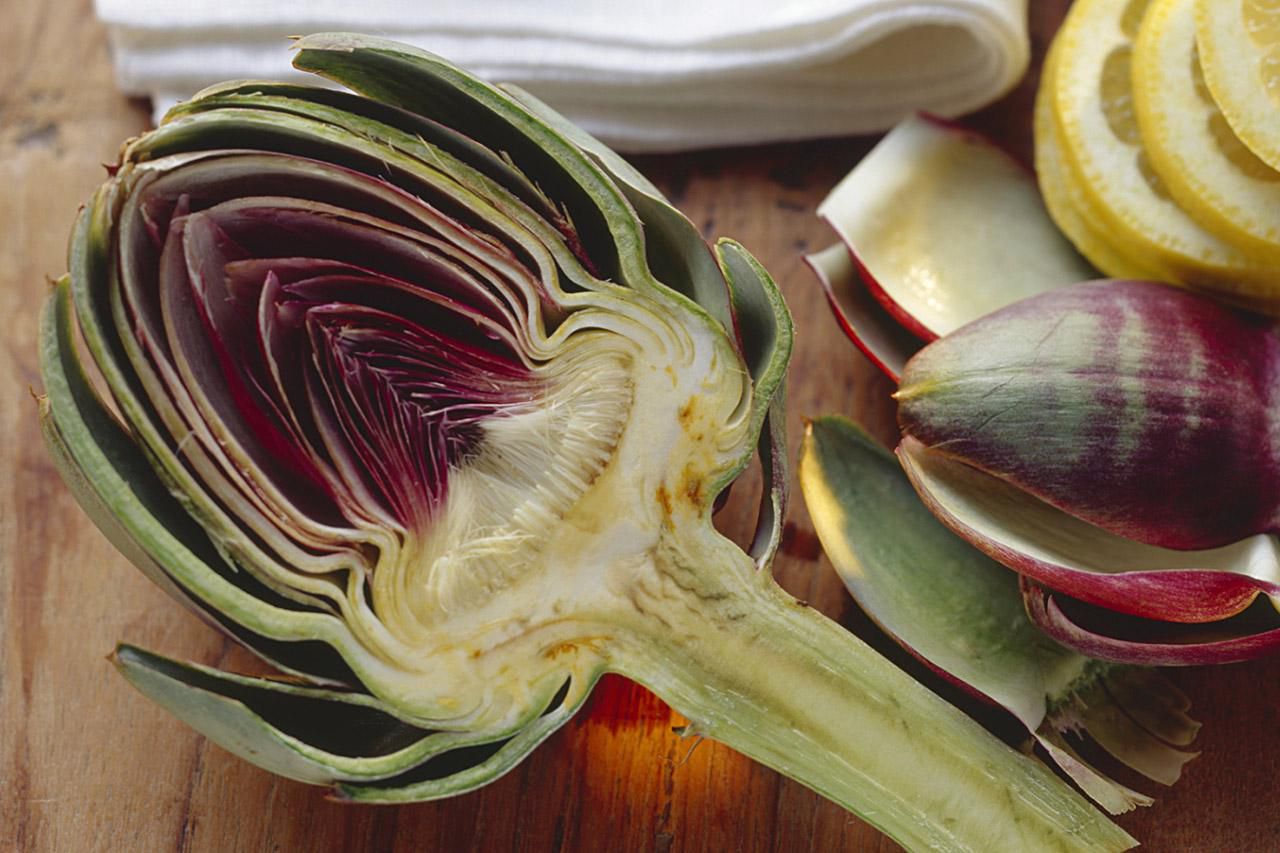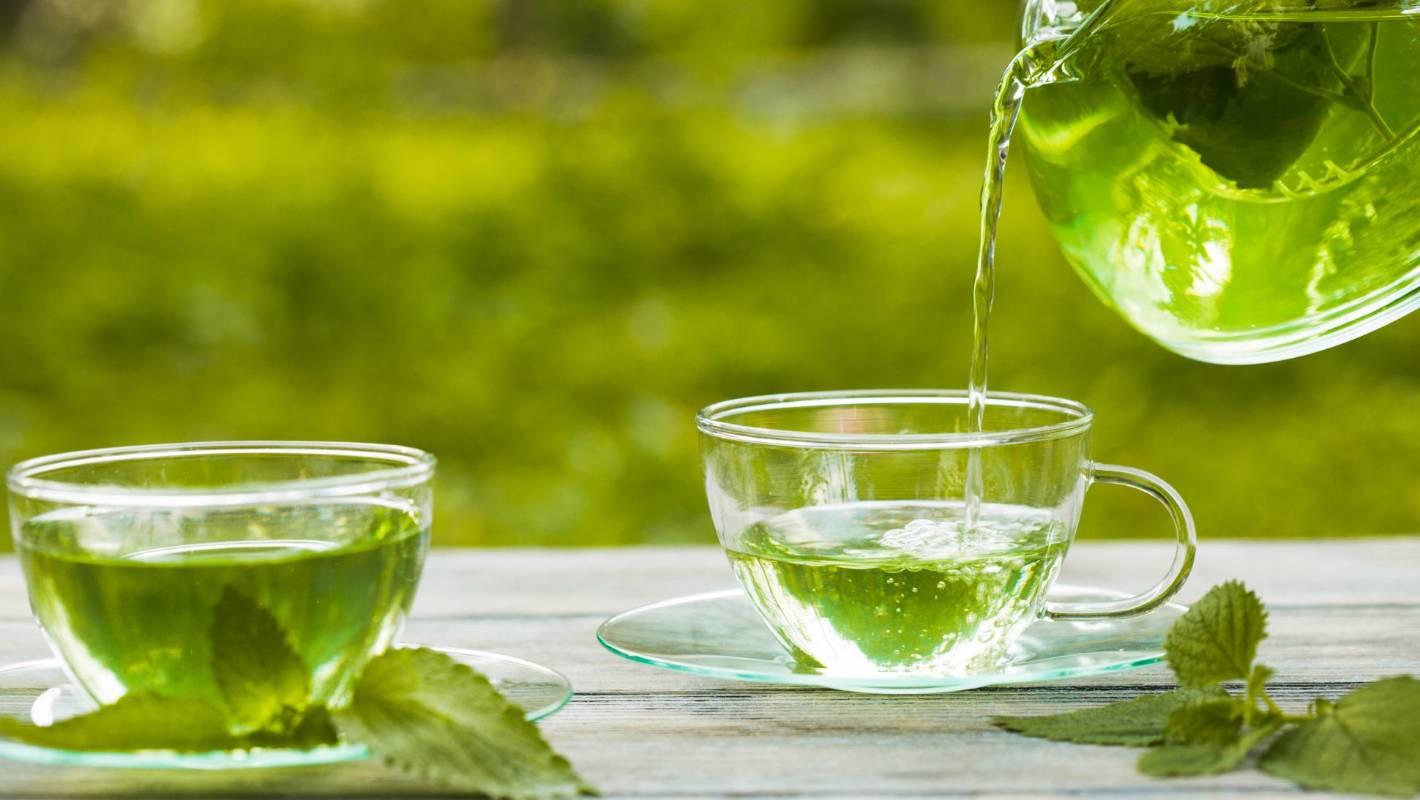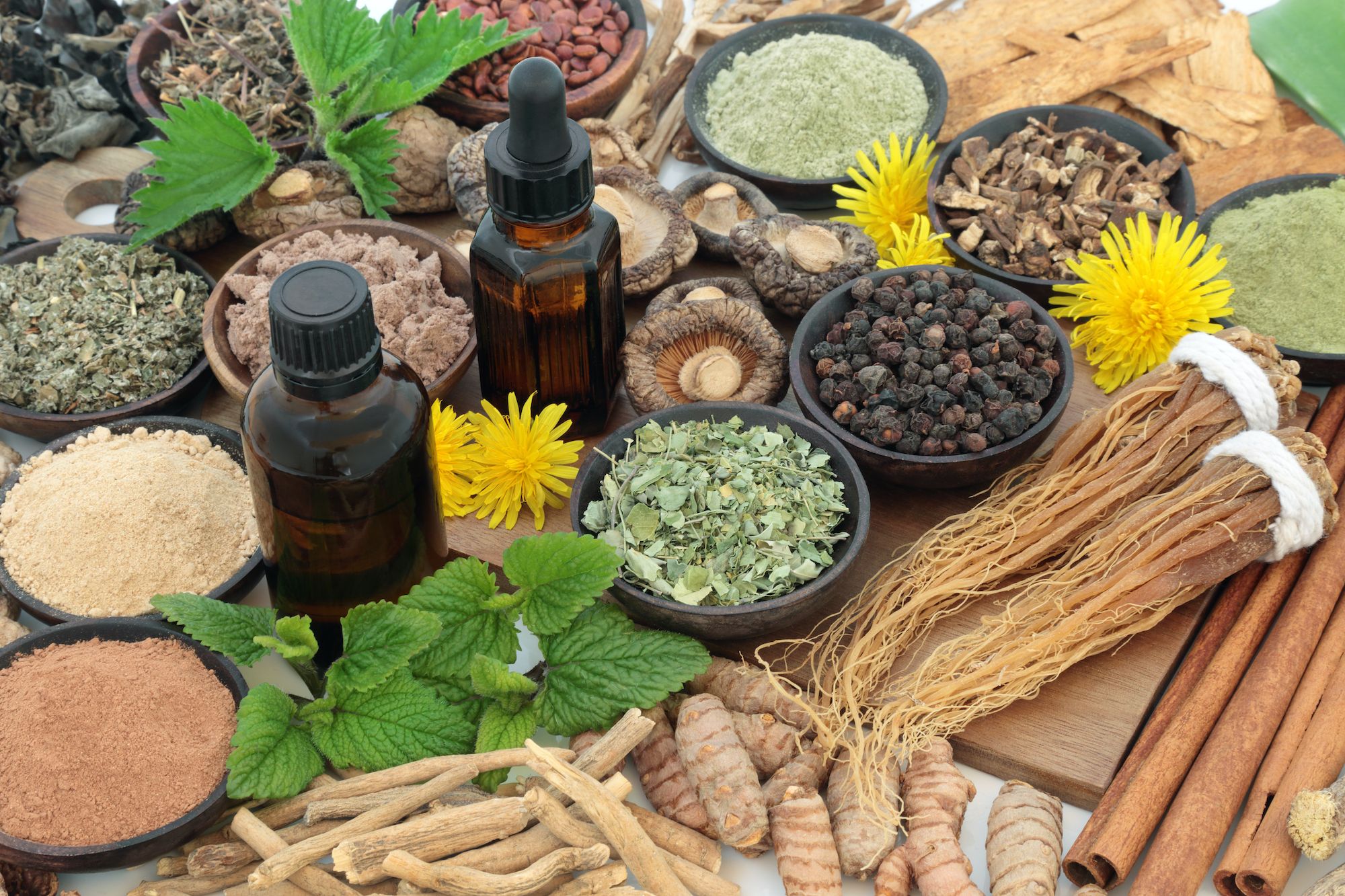Home>Gardening News and Trends>Gardening Trends>What Herbs Help With Digestion
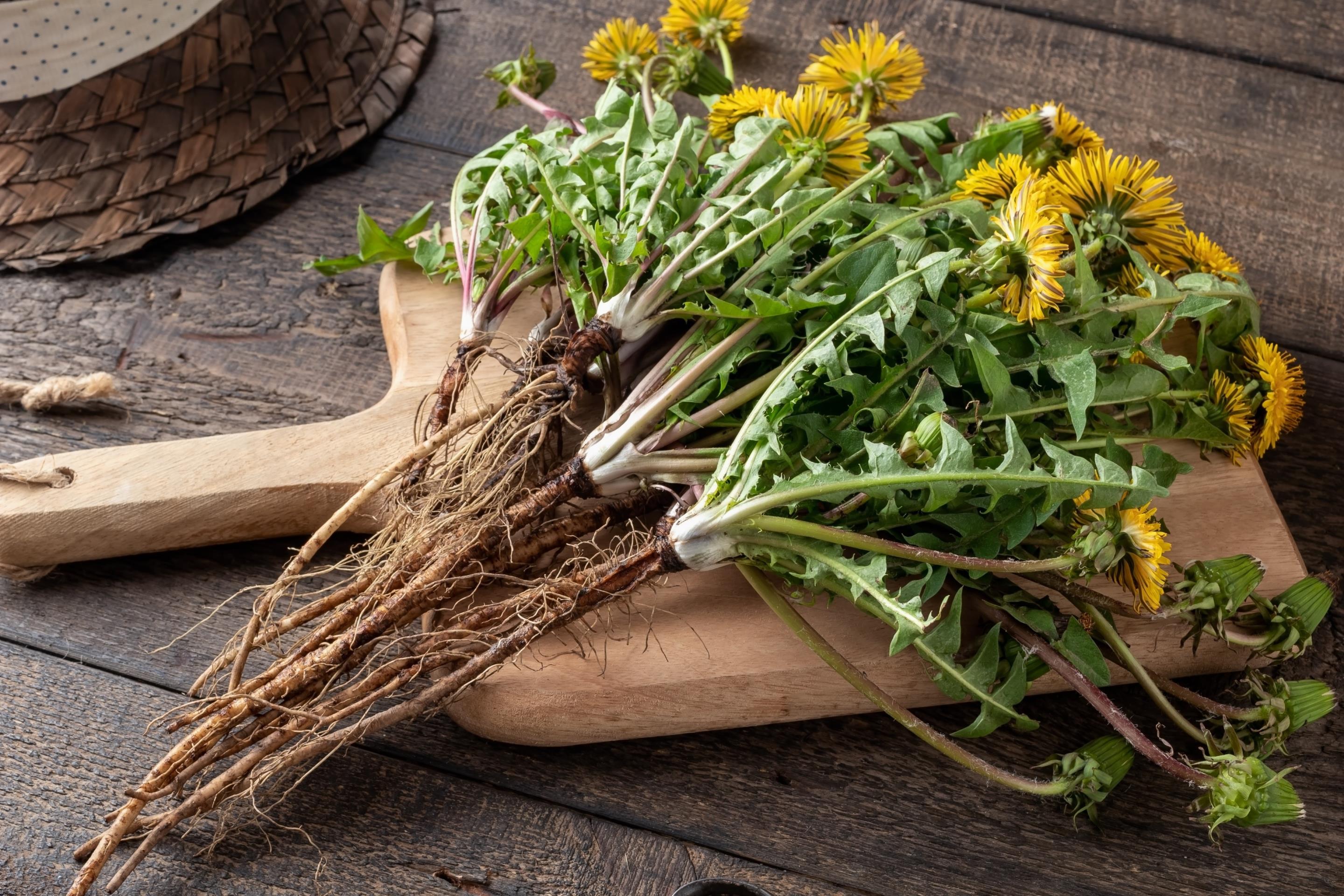

Gardening Trends
What Herbs Help With Digestion
Published: September 28, 2023
Discover the latest gardening trends and explore the best herbs that promote healthy digestion. Enhance your knowledge and grow your own digestive aids with our expert tips.
(Many of the links in this article redirect to a specific reviewed product. Your purchase of these products through affiliate links helps to generate commission for Chicagolandgardening.com, at no extra cost. Learn more)
Table of Contents
Introduction
Welcome to the world of herbal remedies for digestive health! Our digestive system plays a critical role in our overall well-being, as it is responsible for breaking down food and absorbing nutrients. However, factors such as poor diet, stress, and a sedentary lifestyle can often disrupt the delicate balance of our digestive processes, leading to discomfort and digestive issues.
Fortunately, nature has provided us with an array of herbs that can offer relief and promote healthy digestion. These herbs have been used for centuries in traditional medicine and are known for their soothing properties and ability to support digestive functions.
In this article, we will explore some of the most popular herbs that can help with digestion. From reducing bloating to easing indigestion, these natural remedies can provide gentle and effective relief for common digestive problems. Whether you’re dealing with occasional discomfort or seeking long-term digestive support, incorporating these herbs into your wellness routine can make a significant difference in your digestive health.
Before we dive into the specific herbs, it’s important to note that while herbs can be beneficial for digestive health, it’s always a good idea to consult with a healthcare professional before starting any new herbal regimen, particularly if you have underlying health conditions or are taking medication.
Now, let’s begin our journey through the fascinating world of herbal remedies for digestion and uncover the secrets of these remarkable plants!
Ginger
Ginger is a well-known herb that has been used for centuries to soothe digestive issues. It contains natural compounds called gingerols and shogaols, which have anti-inflammatory and anti-spasmodic properties. These properties can help relax the intestinal muscles, reduce bloating, and relieve gas.
One of the key benefits of ginger is its ability to alleviate nausea and vomiting. It is particularly effective in easing morning sickness during pregnancy, motion sickness, and postoperative nausea. By calming the stomach and promoting proper digestion, ginger can provide much-needed relief from these uncomfortable symptoms.
In addition to its soothing properties, ginger is also a potent antioxidant. It can help protect the digestive system from oxidative damage and inflammation, thus promoting overall gut health.
There are various ways to incorporate ginger into your daily routine. You can make a warm cup of ginger tea by steeping freshly grated ginger in boiling water for about 10 minutes. Alternatively, you can add ginger to your meals by using it as a spice or infusing it into soups, stir-fries, or smoothies.
While ginger is generally considered safe for most individuals, it’s important to note that high doses may cause mild side effects such as heartburn or stomach discomfort. As always, if you have any underlying health conditions or are taking medications, consult with a healthcare professional before adding ginger to your regimen.
Overall, ginger is a powerful herb that can provide relief from digestive discomfort, reduce bloating, and promote healthy digestion. Its natural properties make it an excellent choice for those seeking a gentle yet effective solution to common digestive issues.
Peppermint
Peppermint, with its refreshing aroma and cooling sensation, is another herb widely recognized for its beneficial effects on digestion. It contains an essential oil called menthol, which has been found to relax the muscles of the gastrointestinal tract, easing symptoms such as bloating and stomach cramps.
One of the primary uses of peppermint is for the treatment of irritable bowel syndrome (IBS). Studies have shown that peppermint oil capsules can help reduce abdominal pain, bloating, and overall IBS symptoms. The menthol in peppermint has a calming effect on the intestines, helping to regulate bowel movements and improve digestion.
In addition to its soothing properties, peppermint also has a carminative effect, meaning it can help relieve excess gas and prevent the formation of gas in the digestive system. This can reduce discomfort and bloating associated with gas accumulation.
Peppermint is commonly consumed in the form of tea. Simply steep fresh or dried peppermint leaves in boiling water for about 5-10 minutes, then strain and enjoy. Peppermint oil capsules are also available and can be taken as directed by a healthcare professional.
It’s worth noting that peppermint may cause heartburn or acid reflux in some individuals, especially those with gastroesophageal reflux disease (GERD). If you have a history of GERD or any other digestive conditions, it’s advisable to consult with a healthcare professional before using peppermint as a remedy.
Overall, peppermint is a versatile and effective herb that can provide relief from digestive discomfort, reduce bloating, and alleviate symptoms of IBS. Incorporating peppermint into your routine can be a delightful way to support your digestive health.
Fennel
Fennel is a flavorful herb that has long been used for its digestive benefits. It contains compounds like anethole, which have anti-inflammatory properties and can help relax the muscles of the gastrointestinal tract, easing digestive discomfort.
One of the key uses of fennel is for relieving indigestion and reducing bloating. It has carminative properties, making it effective in alleviating gas and preventing its formation. Fennel seeds, in particular, are commonly chewed or brewed into tea to promote healthy digestion and provide relief from bloating and flatulence.
Additionally, fennel can stimulate the production of digestive enzymes, helping to enhance the efficiency of the digestive process. This can aid in the breakdown of food and reduce the chances of indigestion or acid reflux.
Fennel is often consumed as a tea by steeping crushed fennel seeds in hot water for about 10 minutes. The tea has a slightly sweet and aromatic flavor, making it a pleasant and soothing beverage after a meal.
It’s important to note that while fennel is generally safe for consumption, it may cause allergic reactions in some individuals. If you are allergic to celery, carrots, or other plants in the Apiaceae family, it’s advisable to avoid fennel or consult with a healthcare professional before using it as a remedy.
Overall, fennel is a versatile herb that can provide relief from indigestion, reduce bloating, and promote healthy digestion. Its delightful taste and natural properties make it a wonderful addition to your digestive wellness routine.
Turmeric
Turmeric is a vibrant yellow spice commonly used in Indian cuisine and known for its powerful medicinal properties. It contains a compound called curcumin, which has been extensively studied for its anti-inflammatory and antioxidant effects.
One of the benefits of turmeric is its ability to support digestive health. Curcumin has been found to stimulate the production of bile by the gallbladder, which aids in the digestion and absorption of fats. This can help alleviate digestive issues such as bloating and discomfort after consuming fatty meals.
Furthermore, turmeric has been recognized for its potential to reduce inflammation in the gut. Inflammation in the digestive tract can lead to conditions such as inflammatory bowel disease (IBD) and contribute to symptoms such as abdominal pain and diarrhea. The anti-inflammatory properties of turmeric can help calm inflammation and support a healthy gut.
Consuming turmeric can be as simple as adding it as a spice to your meals or incorporating it into golden milk, a traditional Indian beverage. Golden milk is made by combining turmeric with warm milk and other spices like cinnamon and ginger. This soothing and flavorful drink can provide a comforting boost to your digestive system.
It’s important to note that the absorption of curcumin is enhanced when consumed with black pepper. Adding a pinch of black pepper to your turmeric-containing dishes or opting for turmeric supplements that include black pepper extract can help maximize the benefits of curcumin.
While turmeric is generally safe for consumption, it may interact with certain medications. If you are on medication or have any underlying health conditions, it’s advisable to consult with a healthcare professional before using turmeric as a remedy.
Incorporating turmeric into your diet can be a delicious and effective way to support digestive health. Its vibrant color and unique flavor make it a versatile addition to various dishes and beverages.
Chamomile
Chamomile, with its delicate and soothing aroma, has been used for centuries as a natural remedy for a variety of ailments, including digestive issues. The herb is often consumed as a tea and is known for its calming and relaxing effects.
One of the primary uses of chamomile is for relieving indigestion and soothing an upset stomach. It contains compounds like bisabolol and chamazulene, which have anti-inflammatory properties and can help relax the muscles of the gastrointestinal tract. This can ease symptoms such as stomach cramps, bloating, and gas.
Chamomile tea is particularly effective in reducing symptoms of gastroesophageal reflux disease (GERD). Drinking a cup of chamomile tea after a meal can help reduce acid reflux and promote overall digestive comfort.
Additionally, chamomile has been found to have a mild sedative effect, which can help in reducing stress and anxiety. Digestive issues are often exacerbated by stress, so incorporating chamomile into your routine can not only support healthy digestion but also promote relaxation and mental well-being.
To prepare chamomile tea, steep a chamomile tea bag or dried chamomile flowers in hot water for about 5-10 minutes. The tea can be enjoyed warm or chilled, depending on your preference. You can also find chamomile supplements in the form of capsules or liquid extracts.
It’s important to note that chamomile may cause allergic reactions in individuals who are allergic to plants in the daisy family, such as ragweed or chrysanthemums. If you have known allergies or are on medication, consult with a healthcare professional before using chamomile as a remedy.
Overall, chamomile is a gentle and effective herb that can provide relief from digestive discomfort, reduce bloating, and promote relaxation. Sip on a cup of chamomile tea to soothe your stomach and calm your mind.
Dandelion
Dandelion, commonly considered a weed, is actually a nutrient-dense herb with numerous health benefits, especially for digestion. The entire dandelion plant, from its vibrant yellow flowers to its bitter leaves and roots, can be used to support digestive health.
One of the key benefits of dandelion is its ability to stimulate digestion and support liver function. The bitter components of dandelion, such as sesquiterpene lactones, stimulate the production of bile in the liver, which aids in the digestion of fats. Improved bile flow can help reduce symptoms of indigestion, bloating, and constipation.
Dandelion also acts as a natural diuretic, promoting the elimination of excess water and toxins from the body. This can help alleviate water retention and reduce bloating. Moreover, the diuretic effects of dandelion can support kidney function, further contributing to overall digestive and detoxification processes.
In addition to its digestive benefits, dandelion is rich in antioxidants and vitamins, including vitamin A, C, and K. These nutrients help support a healthy immune system and protect the body from oxidative stress and inflammation.
There are various ways to incorporate dandelion into your diet. Dandelion leaves can be enjoyed raw in salads or cooked as a side dish similar to other greens like spinach or kale. Dandelion root can be dried and brewed into a tea, or you can find dandelion supplements in the form of capsules or tinctures.
It’s important to note that dandelion may interact with certain medications, especially diuretics or medications that are processed by the liver. If you are on medication or have any underlying health conditions, consult with a healthcare professional before using dandelion as a remedy.
Overall, dandelion is an underrated herb that offers significant benefits for digestion. Embrace the power of this humble plant to support a healthy digestive system and overall well-being.
Cinnamon
Cinnamon, with its warm and comforting aroma, is not only a delicious spice but also a powerful herb with numerous health benefits, including aiding digestion. It contains compounds such as cinnamaldehyde that possess anti-inflammatory, anti-microbial, and antioxidant properties.
One of the key benefits of cinnamon is its ability to regulate blood sugar levels. By improving insulin sensitivity and slowing down the breakdown of carbohydrates, cinnamon can help stabilize blood sugar levels after meals. This can prevent spikes and crashes in blood sugar, which can often lead to digestive issues like cravings, overeating, and inflammation.
Another beneficial aspect of cinnamon is its ability to support proper digestion and prevent indigestion. It helps stimulate digestive enzymes, which aid in the breakdown of food. This can promote smoother digestion, reduce discomfort, and prevent conditions like acid reflux and bloating.
Cinnamon also possesses antimicrobial properties, which can help combat various pathogens that can cause stomach infections or other digestive disturbances. It can help inhibit the growth of harmful bacteria, fungi, and parasites, promoting a healthy balance of gut flora.
There are various ways to incorporate cinnamon into your daily routine. You can sprinkle it on your morning oatmeal, add it to your coffee or tea, or use it to flavor baked goods and desserts. Cinnamon can also be consumed in the form of capsules or mixed with honey for added benefits.
It’s important to note that although cinnamon is generally safe and well-tolerated, some individuals may be sensitive or allergic to it. If you have any known allergies or are on medication, it’s advisable to consult with a healthcare professional before using cinnamon as a remedy.
Enjoy the warm and comforting flavor of cinnamon while reaping its digestive benefits. Embrace this versatile herb to support a healthy digestion and add a delightful touch to your meals.
Licorice
Licorice, often recognized for its sweet and distinct flavor, is an herb that has been well-regarded for its digestive benefits for centuries. Licorice root contains compounds called glycyrrhizic acid and flavonoids, which contribute to its medicinal properties.
One of the primary uses of licorice is for soothing and healing the digestive system. It has anti-inflammatory properties that can help reduce inflammation in the digestive tract, making it beneficial for conditions such as gastritis and ulcers. Licorice also assists in protecting the stomach lining by increasing the production of mucin, a protective substance that coats the digestive tract.
Licorice is known for its natural laxative effect, which makes it useful in relieving constipation. By promoting bowel movements and softening the stool, licorice can alleviate discomfort and support regularity.
Furthermore, licorice has been found to help reduce symptoms associated with acid reflux and heartburn. It helps coat the esophageal lining, providing a soothing barrier against stomach acid and reducing the chances of acid reflux episodes.
It’s important to note that licorice is available in different forms, including extracts, teas, and supplements. However, it’s crucial to choose deglycyrrhizinated licorice (DGL) products to avoid potential side effects associated with high levels of glycyrrhizin. DGL licorice has the glycyrrhizin compound removed, making it safer for long-term consumption.
It’s worth mentioning that licorice should be used in moderation and not for extended periods, as prolonged use may lead to imbalances in electrolytes, high blood pressure, or other adverse effects. If you have any underlying health conditions or are on medication, consult with a healthcare professional before using licorice as a remedy.
Embrace the natural sweetness of licorice and harness its powerful digestive benefits. Incorporate licorice tea or DGL licorice supplements into your routine to promote a healthy and happy digestive system.
Conclusion
Incorporating herbs into your daily routine can be a wonderful way to support and promote healthy digestion. The herbs mentioned in this article – ginger, peppermint, fennel, turmeric, chamomile, dandelion, cinnamon, and licorice – each offer unique benefits that can help alleviate digestive discomfort, reduce bloating, and support overall digestive health.
From calming an upset stomach to improving digestion and reducing inflammation, these natural remedies have been used for centuries and continue to be valued for their gentle yet effective properties. Whether sipping on a soothing cup of chamomile tea, adding a pinch of ginger to meals, or incorporating turmeric into your cooking, there are various ways to enjoy the benefits of these herbs.
While these herbs are generally safe for most individuals, it’s important to note that everyone’s body is unique. It’s always a good idea to consult with a healthcare professional before starting any new herbal regimen, especially if you have underlying health conditions or are taking medication.
Remember to listen to your body and pay attention to any adverse reactions or sensitivities. If any discomfort or allergic reactions occur, discontinue use and seek medical advice.
In conclusion, these herbs offer natural and gentle solutions for common digestive issues. By incorporating them into your lifestyle, you can support healthy digestion, alleviate discomfort, and enhance your overall well-being. Embrace the power of nature and take a step towards a happier and healthier digestive system.
